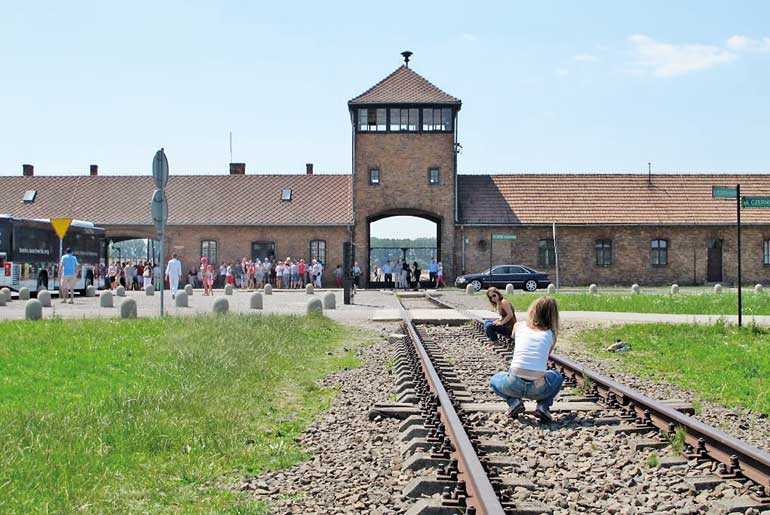Friday Feb 13, 2026
Friday Feb 13, 2026
Monday, 23 December 2019 00:00 - - {{hitsCtrl.values.hits}}

Dark tourism is a new concept in tourism which shows the dark side of a place involvement with death and injury. During the recent past, it has become an interesting idea because people may want to visit these places like Auschwitz in Poland, Pripyat in Ukraine (Chernobyl), beyond its gruesome appeal
There is no doubt that tourism has become one of the popular industries at present.
Tourism fuels the economy of a country by improving public facilities, entertainment, catering, accommodation and living standards of the local people of a country. Dark tourism has been identified as one of the major segments of modern tourism.
Dark tourism involving travel to sites historically associated with death or tragedy. The word “dark” is been used as “black tourism “or “grief tourism” started in the mid-1990s/2000s.
It’s a new concept in tourism which shows the dark side of a place involvement with death and injury. During the recent past, it has become an interesting idea because people may want to visit these places like Auschwitz in Poland, Pripyat in Ukraine (Chernobyl), beyond its gruesome appeal. 
It is an interesting idea that people may tend to find the historical value of these places rather than death and suffering. Furthermore, it’s mainly targeted in the heritage or historical sites with disagreements and other attractions and exhibitions of death, disaster, memorial sites or the seemingly ghoulish that were shadowed in the past.
Dark tourism will give an ample opportunity for the economic development of the country. It promotes the destination and stimulates the economy with the help of using the emotional benefits and advantages of the residents and tourists.
Infrastructure development, uplifting the living standards, sharing knowledge, building comprehensive and potential relationships and friendships via emotional element is one of many aspects that policymakers have to look in to.
Sri Lanka incurred these sufferings during the last three decades of war. At present, residents from these affected areas are less fortunate and still struggle for their day-to-day needs. Still, there are villages in remote areas very difficult and challenging to access due to poor transportation road conditions. Some villages still do not have electricity, telephone, and internet facilities. They may travel on foot to reach the nearest town and have to carry basic needs by using traditional methods.
Staying in a remote area without luxuries such as electricity, telephone, and internet access and with the basics to survive will give ample opportunities to the guests to understand and feel the livelihood of century’s back, how simple it was. They may experience the difficulty of traveling without a modern ways of transportation, preparing food with simple cooking methods with basic utensils and active participation with the villagers for the day to day living, without modern luxuries, this opportunity provides ample time to feel the beauty of the environment and to interact with the inhabitants.
It’s a questionable that people really enjoy a holiday with their mobile phone and the presence of the internet. It seems we consume more time to post our pictures on social media without the people around or the beauty of nature. Tourism is an activity in which people can relax, recreate themselves.
When we profoundly analysed modern tourism it’s a question to be asked again whether this purpose has been satisfied or people really had mental and physical relaxation. Therefore a presence of a situation without electricity, no Internet and no Mobile signals will automatically let travellers concentrate on their trip and holiday.
Pros of dark tourism may accentuate large mass of tourists into those particular tourism destinations, the Attraction of global communication media and academicians, researchers. Locally educated generations may connect with the researches. One of the identified cons of Dark Tourism is it may change the image of the destination which previously promoted.
There are programs in discovery/travel and living channels how to live in a survival situation with basic facilities. It seems those programs are famous for new generations and travellers. Sri Lanka may also develop a concept to attract tourists who are keen to have that kind of experience. As a neighbour country, India already started promoting dark tourism.
Kandy Garrison C
(The writer is a Hotelier and Director of Finance.)